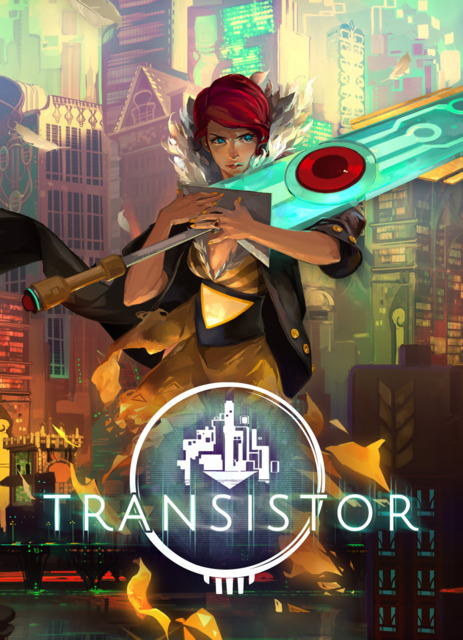A Muffled Voice
"THE HEART OF DRAMA HAS ALWAYS BEEN ROOTED IN CLARITY." -Film Hulk
Film Hulk said the above quote while explaining why movies were trading away emotional impact for the appearance of being smart, but it also explains Transistor's biggest problem. The heart of Bastion, Supergiant Games's previous release, was its story. And it was a simple story. There were only 4 major characters, and everything except the true purpose of the Bastion was spelled out about halfway through the game, setting up the heartbreaking confrontations of the final act. Transistor takes much longer to explain things (and some things are never explained at all), which ultimately lessens the impact of its final act. The ending provokes confusion instead of satisfaction, and the game mechanics aren't good enough to pick up the slack. It's still a good game, but it probably won't stick in your mind the way Bastion did.
The core of Transistor is the relationship between Red, her friend within the Transistor sword, and the City itself. Red & her friend are fleshed out through the narration and various optional locales throughout the city, such as terminals, apartments, and washrooms. The City itself is fleshed out by the terrain, the terminals you find, and your commands themselves. (Each command is tied to a person's file, and you need to experiment with them in different roles to open up their entire file; to fill out the narrative, you need to experiment with the gameplay.)
All of their problems are tied to an event Red narrowly escapes with her life (but without her voice) and the subsequent potential erasure of the entire city. This is where the story breaks down, as too much of it isn't explained. Why did they take Red's voice? How did they take Red's voice? Why is the Transistor obeying Red now? What is the true purpose of the Transistor? None of these were answered in the course of the game. Worse, they even tease an answer to the true purpose of the Transistor that you just miss. As a result, the game trades clarity for cleverness, and you end up wondering what happened and why rather than focusing on your emotional investment. Are these answers revealed in New Game+? I don't know yet, and I don't know whether I'll be relieved or infuriated if they are.
Although the mechanics aren't great enough to pick up the story's slack, they are an interesting take on turn-based combat. Combat alternates between Real-Time Defense and Slow-Motion Offense. Attacks are slow and hard to aim in real-time, so you spend most of it dodging shots until your meter charges up. Once your meter charges up, you can activate it to pause the game, queue up a series of moves and attacks, and unpause to watch Red perform them at blinding speed. Then you continue to run around dodging shots until your meter recharges and so forth. It's an interesting take on turn-based RPG combat.
You customize Red using various commands you pick up. Each command can either be used as an active attack, an attack modifier, or a passive effect. The combinations are predictable (tacking the Charm command as a modifier on any attack will make it charm enemies to your side, for instance), rather than giving you a completely new and crazy attack. My standard loadout included a Crippling Bouncing Bullet I could fire while recharging, a Combo-Starting Wall-Piercing Grappling Hook, and a Backstabbing Robot Dog. Unfortunately, they didn't give you a way to customize your loadout based on the upcoming fights; you go into them with no idea what you're facing and no chance to change your loadout after you start. Thus, your loadout is based only on personal preference and working around commands disabled from taking too much damage in previous fights.
The game is also extremely linear, with series of battles you can't avoid and miniscule side paths. It feels even more linear than Bastion, since you can't revisit past areas; you can only move forward. This made the thought of missing anything behind me nervewracking; what if I missed a vital clue to understanding the story by going through a one-way door? It didn't matter; nothing I found down those sidepaths really helped me understand the story more, although they did flesh out the City, Red, and her friend. The closest the game has to actual side content is the Challenge Missions you can complete for extra XP, and I quickly blazed through most of those.
I'm not quite sure yet what to make of Supergiant's latest game. Is it just a decent game by a company who should be able to do much better? Or is it a good game that just pales in comparison to Bastion? It's a toss-up between 3 and 4 stars, and my choice might depend as much on my current mood as it does the game itself. The question is, how many people do I think would be satisfied by this game? Would it just be fans of Bastion and RPGs? Or is it good enough to draw in people outside of that intersection?
...I think it's a good game, I just don't think it's good enough to draw new fans in like Bastion did. In that case, I'll go with 3 stars. It's a decent effort, but you can do better than this, Supergiant.
